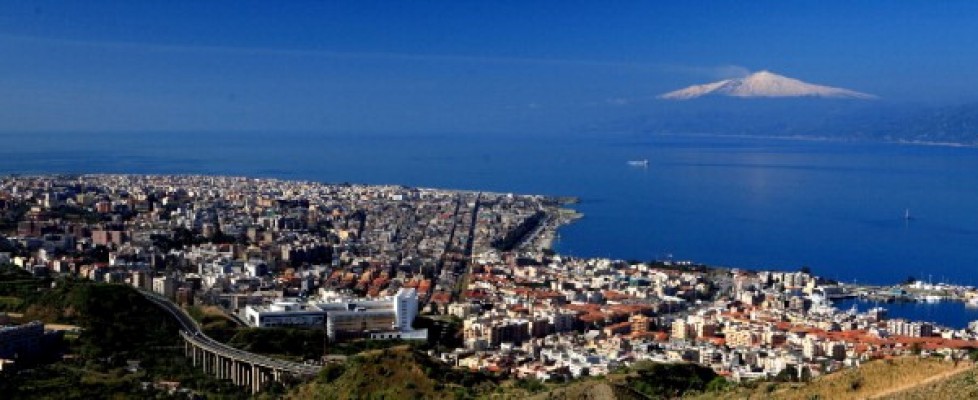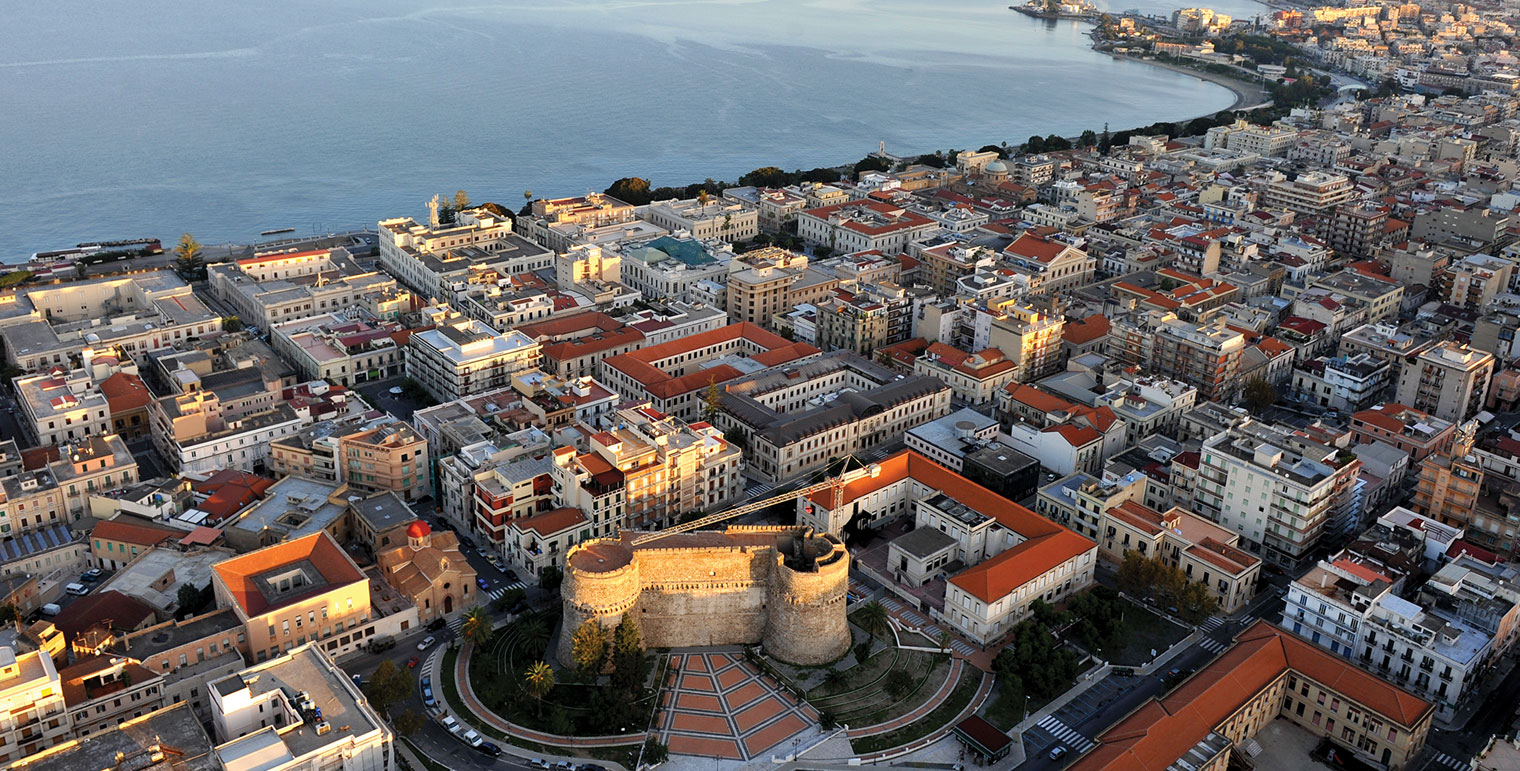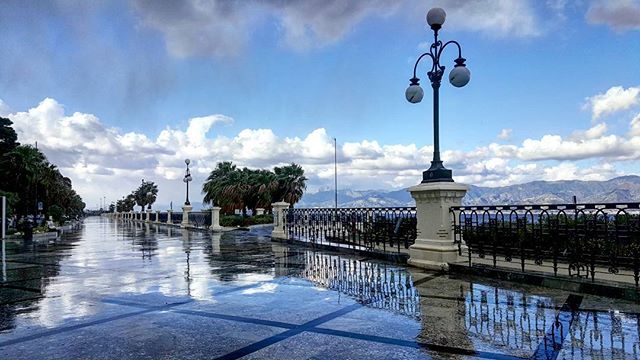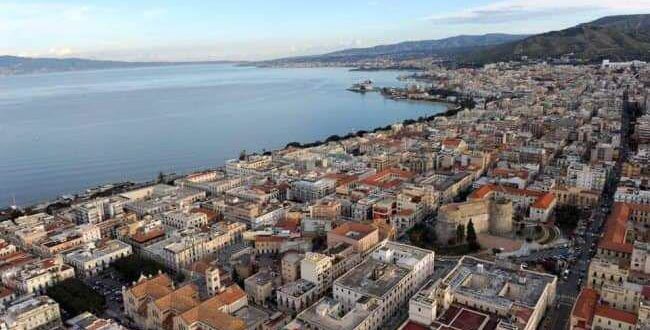



The city of Reggio Calabria is home to one of the most important Italian museums where the famous Riace Bronzes are kept, which have become one of its identifying symbols. It is the first city in the region for antiquity and despite its ancient foundation - Ρηγιον was an important and thriving Magna Graecia colony - it has a modern urban layout, the effect of the catastrophic earthquake that destroyed much of the town on 28 December 1908.

Its urban system, forced by the Strait of Messina and crowned behind by the last offshoots of the Apennines, represents one of the main economic and regional service poles but also one of the highest concentrations of nodes and equipment for transport and natural logistic structure of the Region towards the southern coasts of the Mediterranean. The historic center, consisting mainly of Art Nouveau buildings, has a linear development along the Calabrian coast of the strait with streets parallel to the promenade dotted with magnolias, palm trees and rare or exotic plants.

On 28 December 1908 Reggio suffered the consequences of one of the most catastrophic events of the twentieth century: the 1908 earthquake which reached a magnitude of 7.1 and which seriously damaged the city.
Today's city follows the pattern of the reconstruction that took place in the early decades of the twentieth century with modern canons, between May and September 1943 it had to undergo heavy bombardments by the troops of the British 8th Army which razed the neighborhoods of Santa Caterina, Arangea Tremulini and Sbarre to the ground. killing some 4,000 civilians. After the Second World War the city has grown considerably, almost doubling its population to around 200,000 inhabitants today.

In the early seventies in Reggio there were administrative upheavals following the violent riots in the streets due to the claim of the status of regional capital, which as a result of the new ordinary regional statute was assigned to Catanzaro.

Over the centuries various destructive events, both human and natural, have devastated the city which today has a modern aspect, mainly the effect of the last reconstructions carried out after the 1908 earthquake made on the old ruins. Many of the works of art and buildings built over the centuries have been lost, however the city retains monumental examples of value and ancient vestiges that testify to its millennial history. The city center is therefore mainly characterized by the architecture of the early decades of the twentieth century, and presents interesting examples of liberty, neo-Gothic (Palazzo Zerbi), neoclassical (the Teatro Comunale Francesco Cilea), eclectic (Palazzo Mazzitelli) and the so-called fascist one (the Railway Station, the National Museum of Magna Grecia, the work of Piacentini, the former Barracks of the Young Fascists). In the urban context, moreover, some important factories emerge such as the Aragonese Castle, partly destroyed to create the streets adjacent to it, in the upper part of the city, the nearby Duomo, completely rebuilt after the destruction of the previous building occurred with the earthquake of the 1908, the Church of the Ottimati, the Church of S. Maria della Cattolica, the Church of Graziella, survived at least in part the 1908 earthquake. The city is also home to a National Museum which, after that of Berlin, is the largest and an important museum which preserves the finds of Magna Graecia and which includes, among other valuable finds, the famous Riace Bronzes and the Philosopher's Head. Reggio Calabria overlooks the sea and its promenade, faces Sicily and in the middle band hosts one of the most important botanical gardens with various species of tropical plants and centenary ficus trees and the remains of the Greek walls and Roman baths. Behind the city stands the Aspromonte massif, which reaches 1,998 m in height, with the Gambarie ski resort and its natural park.
Reggio Calabria
Address: Piazza Italia 1, 89125 Reggio Calabria
Phone: 0965 362111
Site:
http://www.comune.reggio-calabria.it/on-line/Home.htmlLocation inserted by
BBCC